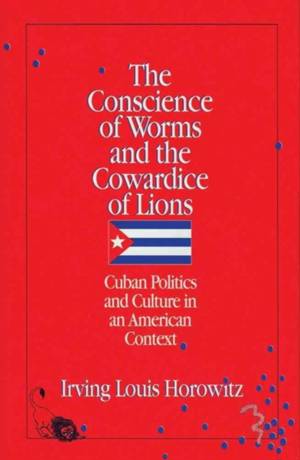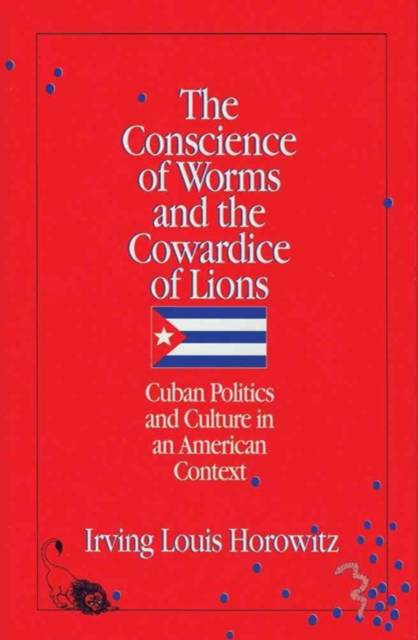
- Retrait gratuit dans votre magasin Club
- 7.000.000 titres dans notre catalogue
- Payer en toute sécurité
- Toujours un magasin près de chez vous
- Retrait gratuit dans votre magasin Club
- 7.000.0000 titres dans notre catalogue
- Payer en toute sécurité
- Toujours un magasin près de chez vous
The Conscience of Worms and the Cowardice of Lions
Cuban Politics and Culture in an American Context: The 1992 Emilio Bacardi-Moreau Lectures Delivered at the University of Miami
Irving HorowitzDescription
The Cuban migration to the United States that began as a trickle in 1959, with the seizure of power by Fidel Castro and his guerrilla insurgents, and later was to become a flood tide of people exceeding one million, brought to the United States a unique cultural as well as political configuration. The Conscience of Worms and the Cowardice of Lions seeks to explore that special relationship.
The phrase "conscience of worms" has a double derivation: from Castro's critique of ideological opponents and exiles as gusanos and from the quite opposite Spanish-language tradition of gusanos de conciencia--those tiny worms that burrow beneath the surface for truth. The "cowardice of lions" is more straightforward--referring to those North Americans who roared in favor of Castro only to- lapse into a protracted silence when the excesses of the communist regime became evident.
This volume was delivered by Irving Louis Horowitz as the Bacardi Lecture Series at the University of Miami, North-South Center in 1992. The lectures cover a gamut of issues ranging from paradox, procrastination, and paralysis of United States foreign policy; thirty-plus years of apologetics by a select group of North American social scientists and journalists; the absorption of honest social research by the Cuban-American community; to a summing up of what has been learned from the Revolution and its impact on social and political theory.
Throughout, Horowitz shows that the major theories about the Castro Revolution have had substantial consequences--both in the United States and in Cuba--on how Marxism and communism are assessed in general. The survival of the Castro government, long after the upheavals that eliminated totalitarian regimes in Russia and Eastern Europe, is itself a topic covered in this probing volume, written by a long-standing analyst of Cuban affairs and social science alike.
Spécifications
Parties prenantes
- Auteur(s) :
- Editeur:
Contenu
- Nombre de pages :
- 81
- Langue:
- Anglais
Caractéristiques
- EAN:
- 9781560000990
- Date de parution :
- 15-06-06
- Format:
- Livre relié
- Format numérique:
- Genaaid
- Poids :
- 340 g

Les avis
Nous publions uniquement les avis qui respectent les conditions requises. Consultez nos conditions pour les avis.






